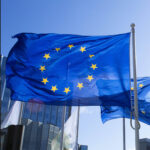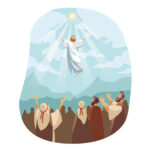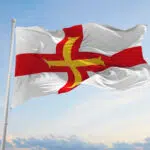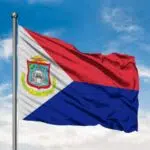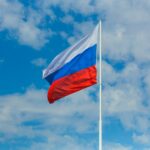Russian Victory Day is on May 9, and the celebrations get grander with every passing year. Russia celebrates Victory Day to commemorate the Soviet Union’s victory over Germany in World War II. Few countries celebrate the end of WWII with as much gusto and flair as Russia. While traditionally a day of introspection and mourning for Europe, the spirit in Russia is diametrically the opposite. Victory Day is a public holiday. The highlight? Spectacular military parades — and the armed forces go all out. Some consider it a remembrance of millions of Russians who died in the war. Why is Victory Day integral to Russia’s story?
History of Russian Victory Day
On May 7, 1945, General Alfred Jodl signed the terms for Germany’s unconditional surrender that would go into effect on May 8. The Allies commemorated May 8 as “V.E. Day” or Victory in Europe Day to officially mark Germany’s surrender in Reims, France. Joseph Stalin held off on the celebrations until the Nazis surrendered in Soviet-controlled Berlin the next day. By the time Germany signed the Instrument of Surrender, it was past midnight and already May 9, Moscow time. Russia has commemorated Russian Victory Day on May 9 ever since.Celebrations (if any) weren’t always grand. Russian Victory Day took on multiple meanings and interpretations with every new government. Soviet Union leader Joseph Stalin preferred sweeping the occasion under the carpet. The day was a World War II legacy he and his comrades would rather forget, alongside numerous atrocities in their name. Stalin’s disregard for Victory Day may have stemmed from paranoia — that a show of bravado could incite powerful generals in his army to stage a coup. Twenty years passed without Victory Day celebrations.Things drastically changed in 1965 when a World War II soldier, Leonid Brezhnev, rose to the ranks of party secretary. Brezhnev leveraged general sentiment around the Great Patriotic War to rally support for his leadership. Russian Victory Day became a public holiday. Military parades and grand celebrations were the norm and continue in present-day Russia. Under Boris Yeltsin, Russia’s first elected President, Victory Day rekindled nostalgia for the glory days. The festivities intended to evoke memories of a once-powerful county and military, both of which had become mere shadows of their former selves by then. In 1995, Russian Victory Day became an annual celebration.However, it is President Vladimir Putin who elevated Victory Day celebrations to new heights. Since 2008, Russian Victory Day has not only honored the lives of eight million Russians lost in the war but has also become a display of military might. Battalions and parades are integral to celebrations. Parades feature the latest tanks, warplanes, and nuclear missiles. Victory Day celebrations today speak to the emotions of two distinct generations: older Russians still scarred by the war, and the younger demographic rejoicing in the greatness of a post-Communist Russia.Most Russians find the ostentatious celebrations jarring and not in keeping with what the day should be about — remembering the sacrifice of loved ones in the war. In 2011, three journalists took it upon themselves to remind everyone by quietly walking through the streets with portraits of family members who died in the war. The gesture resonated with Russians everywhere, and it soon became the Immortal Regiment March. Citizens have since taken to the streets silently every year carrying pictures of loved ones lost to war. The march is a sobering reminder of the costs of war and a striking sight compared to the louder state-sanctioned celebrations that advocate military glory.
Russian Victory Day timeline
Under Joseph Stalin, the first victory parade with captured German insignia takes place in the Red Square.
Soviet leader Leonid Brezhnev orders a grand parade featuring war veterans and weaponry.
Russian Victory Day becomes an annual celebration under Boris Yeltsin, Russia’s first elected President.
The Russian Victory Day parade is televised live to a global audience for the first time, featuring mechanized units and fighting planes flying past.
Russian Victory Day FAQs
Which countries celebrate Victory Day?
Victory Day is a common term for a public holiday where countries commemorate triumph in war or against hostile forces. The most widespread celebration usually involves the victory of the Allies in World War II.
What is the Victory Day parade in Russia?
Every year on May 9, military parades take place in various post-Soviet nations. Besides Russia, the most prominent ones happen in Belarus and Kazakhstan.
How many U.S. military soldiers died in World War II?
The United States lost over 291,557 men to the Great War.
How to Observe Russian Victory Day
-
Attend the parades
Visit Moscow’s Red Square to witness the glorious military parades first-hand. Join over eight million proud Russians in a celebration of their motherland.
-
Honor a veteran
Know a veteran? Send cards or flowers to show your appreciation. You could also visit a war memorial to pay your respects.
-
Wear orange and black
In the run-up to Victory Day, Russians usually wear the St. George ribbon to show their support for veterans. The striped orange-and-black ribbon symbolizes both the war and the resurrection of Saint George.
5 Facts About Russia That Will Blow Your Mind
-
It has the world’s longest railway
The Trans-Siberian Railway covers 5,772 miles, crosses seven time zones, and connects passengers to China and Mongolia.
-
An explosive country
Russia is home to 12 active volcanos.
-
Most of Russia is Siberia
The unforgiving Siberian landscape takes up 77% of the land.
-
Home to a beloved video game
The first version of Tetris was invented in Russia by Alexey Pajitnov.
-
Russia sold Alaska to the United States
In 1897, an impoverished Russia sold Alaska for 7.2 million dollars.
Why Russian Victory Day is Important
-
Remembering lives lost
Russian Victory Day pays tribute to ordinary civilians who fought bravely for their country. Today isn’t about condoning war, but about remembering the courage and strength of those who had to sacrifice a lot for others during the war.
-
A quiet revolution
On this day, citizens conduct silent marches that differ starkly from loud state celebrations. It is a poignant, effective way to protest the glorification of war.
-
Ideas of patriotism
Some people find national pride in battle scars. Others find it in the safety and security of their loved ones. No matter the school of thought, a country is nothing without its people.
Russian Victory Day dates
| Year | Date | Day |
|---|---|---|
| 2023 | May 9 | Tuesday |
| 2024 | May 9 | Thursday |
| 2025 | May 9 | Friday |
| 2026 | May 9 | Saturday |
| 2027 | May 9 | Sunday |




